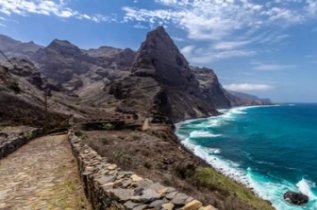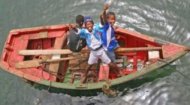|
Cape Verde Profile |
Cape Verde Profile |
Cape Verde Profile | Cape Verde Profile |
|

 The money they send 'home' helps sustain the country's economy. Cape Verde is also affected by plagues of locusts which sweep in from the African mainland at regular intervals badly damaging much needed crops in a country that is already dependent on foreign food aid to feed its inhabitants. 80% of the population are employed in agriculture however that only accounts for around 12% of GDP. Crops include maize and beans, with bananas, sugar cane, sweet potatoes and cassava also being grown. Despite this, 90% of food needs to be imported to the island with exported crops mainly being bananas and coffee. Cape Verde is in 135th place out of 193 countries and territories in 2025 when ranked in terms of life expectancy, literacy, access to knowledge and living standards, making it the highest ranked country in West Africa, with a life expectancy of 76.4 years years (2025). Poverty, however remains rife and, for a country very much dependant on the tourist industry, the COVID-19 pandemic has hit the economy hard. 54% of the country's rural population (and 16% in urban areas) do not have access to flushing toilets (just 20% of the population has access to a sewer, and 27% of the population has to resort to open defecation) or other sanitation improvements and one in five is reliant on lakes, rivers and the sea to keep clean in the absence of available water. Despite many improvements in the water and sanitation sector over the last two decades, Cape Verde still faces significant challenges in overcoming its water and sanitation crisis relying on the energy intensive process of desalinization for clean water. Primary school education in Cape Verde is mandatory between the ages of 6-14 and free for children ages 6-12 and while primary school enrolment is pretty much universal, and secondary school enrollment is also high, with a gross enrollment rate of 86.49% (2025). Cape Verde faces several significant health challenges, with non-communicable diseases (NCDs) like diabetes and hypertension being major concerns, alongside infectious diseases and limitations in healthcare infrastructure. NCDs account for nearly 70% of deaths, with hypertension prevalence increasing and diabetes being prevalent. Foodborne illnesses and accidents are also common, especially for tourists.
|










